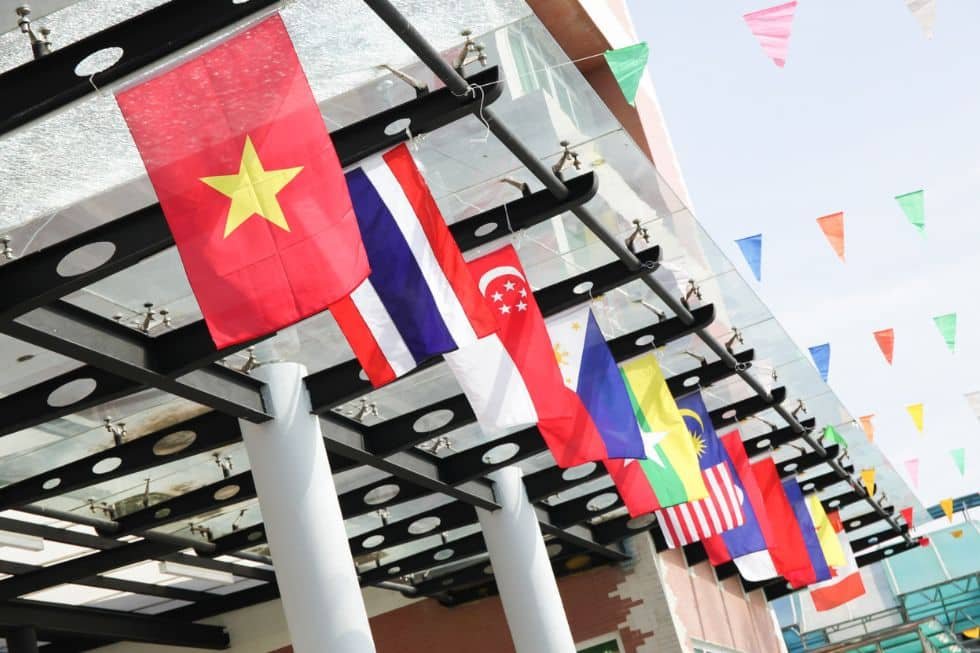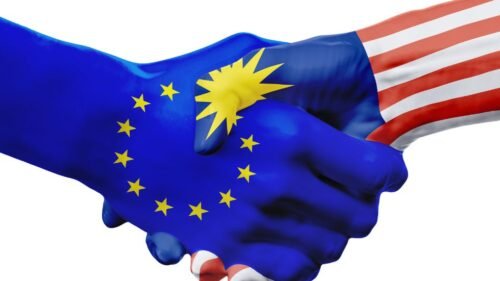In July 2025, Russia became the first country to formally recognize Afghanistan’s Taliban-led government, an audacious diplomatic move that shifts Moscow’s influence from Central Asia to the Middle East. For a country whose troops once fought a brutal decade-long war against Afghan mujahideen in the 1980s, this act of state recognition marks a remarkable reversal of stance and priorities.
At a time when the Taliban’s domestic governance remains deeply contested, particularly over women’s rights and human freedoms, Moscow’s move was driven less by ideological affinity and more by cold geopolitical calculus. It reflects Russia’s intent to assert itself as Eurasia’s indispensable broker while marginalizing Western influence.
This dynamic poses a challenge for the Association of Southeast Asian Nations (ASEAN) countries, which must respond strategically to assert their relevance and prevent further marginalization in the evolving geopolitical landscape. By actively engaging with both Russia and other global players, ASEAN can safeguard its interests and strengthen its position in the face of shifting power dynamics.
Moscow’s strategic shift: Aligning with the Taliban
For decades, Moscow’s Afghanistan policy was defined by trauma and mistrust. The Soviet Union’s invasion in 1979 left some 15,000 Soviet soldiers dead and scarred an entire generation. After its 1989 withdrawal, Russia supported anti-Taliban factions in the 1990s and officially designated the Taliban a terrorist organisation in 2003.
Yet the fall of Kabul in 2021 and the subsequent US withdrawal created a power vacuum too consequential for Moscow to ignore. Putin’s government gradually recalibrated, engaging Taliban leaders, hosting delegations and lifting the group’s terrorist designation by April 2025. Russia’s catastrophic March 2024 ISIS-K-linked terrorist attack in Moscow further accelerated this outreach, as the Taliban’s rivalry with ISIS-K made Kabul a potential counterterrorism ally.
Economic motivations loom large in Moscow’s pivot. Afghanistan has quietly become a modest consumer of Russian fuel, grain and construction materials since 2022. In 2024, bilateral trade surged — agricultural imports jumped 41.4% to nearly $1.5 billion, grain exports rose 22% and fuel deliveries topped 500,000 metric tons in Quarter 1 of 2025. Moscow now eyes more ambitious projects, including a trans-Afghan gas pipeline linking Central Asia to Pakistan and India, a north–south railway corridor to Pakistani ports and expanded mining concessions.
Regional rivalries and economic ambitions
As of early 2025, Russia–Afghanistan bilateral trade is estimated at $760 million, with hydrocarbons accounting for 40%, grain exports accounting for 30% and engineering services accounting for 20%, according to the Russian Federal Customs Service. Parallel to Moscow’s ambitions, Gulf capitals are expanding economic footprints in Afghanistan; Qatar’s 200 million infrastructure program and Saudi Arabia’s soft loan initiatives signal competing regional corridors that Russia must navigate.
These ventures offer Russia not just profits but geopolitical leverage over Central and South Asia’s economic arteries. Moscow builds regional interdependence by embedding itself in Afghanistan’s infrastructure and commercial networks, shielding it from Western sanctions and limiting US and NATO re-entry into its strategic backyard.
Russia’s recognition also aligns its Afghan policy with China’s. Beijing has courted Taliban authorities since 2021, securing oil and mineral deals while positioning Afghanistan within its Belt and Road blueprint. Joint Russian–Chinese interest in a stable, pliant Afghanistan counters both Western influence and radical jihadist spillover into Xinjiang and Central Asia. Notably, Gulf Cooperation Council (GCC) states — particularly Qatar, the United Arab Emirates (UAE) and Saudi Arabia — have also recalibrated their engagement with the Taliban, offering humanitarian aid and hosting political dialogues, while quietly positioning themselves as mediators in Afghanistan’s fragile stability.
Shared security concerns over ISIS-K spillover and extremist networks have prompted discreet Gulf–Afghanistan counterterrorism talks, with the UAE reportedly strengthening Kabul’s intelligence capabilities in 2024.
Gulf soft power vs. Russian realpolitik
While much of the diplomatic spotlight focuses on Moscow and Beijing, Gulf Cooperation Council states have steadily expanded their footprint in Afghanistan. Qatar has positioned itself as a key intermediary, providing over $200 million in post-war infrastructure investments since 2023, while Saudi Arabia, through its KSrelief agency, has extended more than $150 million in food, health and education support to Kabul. Simultaneously, the UAE has opened security cooperation channels with the Taliban, focusing on counterterrorism risk management in northern Afghanistan.
Furthermore, Moscow’s overtures to the Taliban strengthen its leadership within the Collective Security Treaty Organization (CSTO) and the Eurasian Economic Union (EAEU). Russia exerts pressure on Central Asian governments such as Tajikistan, Kazakhstan and Uzbekistan to tighten their strategic alignment by projecting itself as the primary security guarantor against cross-border terrorism.
Russia’s Afghanistan policy mirrors its pragmatism in Syria. After Bashar al-Assad’s ouster in early 2025, Moscow moved swiftly to entrench its influence with the interim government, preserving its military bases and oil concessions. The Kremlin’s willingness to pivot from ideological allies to whoever controls state apparatuses showcases its broader doctrine: secure interests first, partnerships second.
In both Syria and Afghanistan, Moscow capitalizes on post-Western vacuums, consolidating Eurasian corridors while selling itself as a predictable, sovereign-respecting partner. This consistency makes Russia an attractive option for fragile regimes navigating the complexities of great-power rivalries.
Yet Russia’s gambit is fraught with perils. The Taliban remains diplomatically isolated, with global condemnation of its human rights record unabated. Russian recognition risks alienating India, a key regional partner wary of Pakistan-Taliban ties, and complicates Moscow’s balancing act with Tehran. Moreover, Afghanistan’s internal fissures — ethnic dissent, ISIS-K insurgency, narcotics trade — threaten to destabilize any investment in Kabul’s stability.
Beyond material interests, Gulf states have cautiously projected soft power into Afghanistan’s social landscape. Qatar, for instance, continues to host regional conferences on girls’ education and interfaith dialogue, contrasting Russia’s purely transactional security and trade approach. The UAE’s humanitarian logistics hub at Dubai World Central has become a lifeline for international non-governmental organizations (NGOs) operating within Afghanistan’s challenging environment.
While Moscow pragmatically sidelines human-rights discourse, Qatar notably funds women’s education programs in Kabul. It also hosts Afghan female scholars in Doha, leveraging soft power where Russia offers only security guarantees.
This divergence highlights a values-versus-stability challenge for regional actors as they navigate Afghanistan’s post-war future. While Russia positions itself as a guarantor of order and pragmatic engagement, it must also reconcile the international optics of supporting an administration whose policies toward women and minority communities risk complicating Moscow’s broader narrative of inclusive, multipolar partnership.
A strategic gamble with global implications
Russia’s embrace of the Taliban marks not mere opportunism, but a strategic recalibration aimed at entrenching itself as Eurasia’s pivotal broker. Recognising Kabul’s new authorities ahead of others establishes regional participation terms, develops alliances with China and Central Asian governments and postures itself as a pragmatic mediator in the face of Western pullback.
This bold move also signals to Middle Eastern and South Asian capitals that, in the emerging multipolar world, Russia will support any regime that can provide stability and access, even if that involves ignoring ideological issues.
To avoid strategic marginalization in Eurasia’s evolving security order, the Association of Southeast Asian Nations countries should consider appointing a regional special envoy to Kabul, modelled after the ASEAN Regional Forum mechanism. Concurrently, Jakarta could convene a Track 1.5 Indo-Pacific–Afghanistan dialogue platform to foster multilateral oversight on trade, security and refugee management. Collaborating with Gulf donors and India on joint maritime security patrols around the Arabian Sea chokepoints would further reinforce Indo-Pacific resilience against spillover threats from Afghanistan.
For ASEAN and Indo-Pacific nations, Russia’s shift towards the Taliban highlights the need to adjust their Eurasian policies to avoid being sidelined in a region increasingly governed by Moscow and Beijing.
[Claudia Finak-Fournier edited this piece.]
The views expressed in this article are the author’s own and do not necessarily reflect Fair Observer’s editorial policy.
Support Fair Observer
We rely on your support for our independence, diversity and quality.
For more than 10 years, Fair Observer has been free, fair and independent. No billionaire owns us, no advertisers control us. We are a reader-supported nonprofit. Unlike many other publications, we keep our content free for readers regardless of where they live or whether they can afford to pay. We have no paywalls and no ads.
In the post-truth era of fake news, echo chambers and filter bubbles, we publish a plurality of perspectives from around the world. Anyone can publish with us, but everyone goes through a rigorous editorial process. So, you get fact-checked, well-reasoned content instead of noise.
We publish 3,000+ voices from 90+ countries. We also conduct education and training programs
on subjects ranging from digital media and journalism to writing and critical thinking. This
doesn’t come cheap. Servers, editors, trainers and web developers cost
money.
Please consider supporting us on a regular basis as a recurring donor or a
sustaining member.
Will you support FO’s journalism?
We rely on your support for our independence, diversity and quality.








Comment